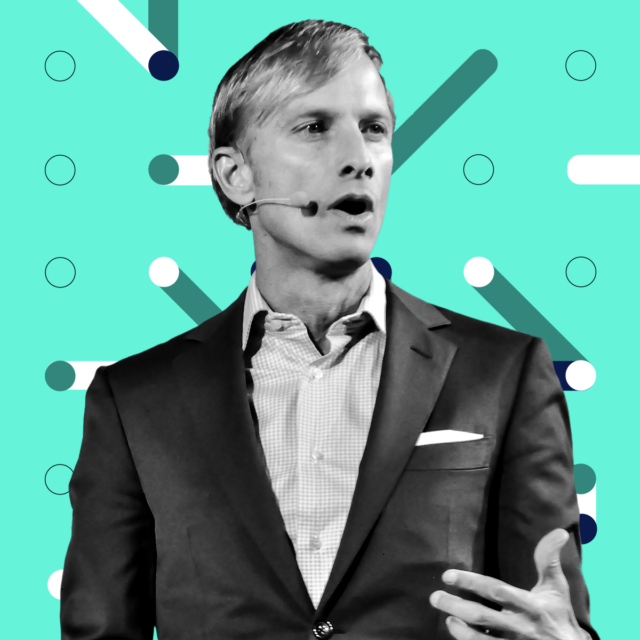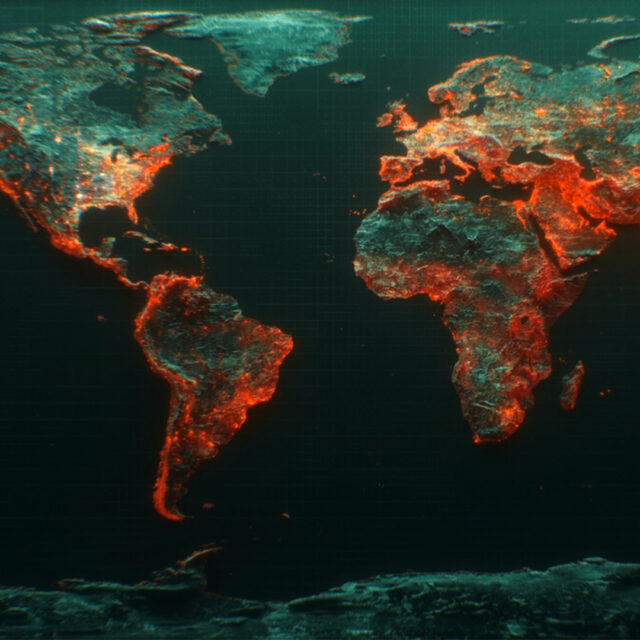Mark Dybul is the co-director of the Centre for Global Health Practice and Impact, and professor at Georgetown University. We interviewed him as part of our #PassTheMic campaign. Here’s some of what he had to say.
This is the first time really since 1918 that the world has encountered a pandemic that reaches every corner of the earth. As soon as restrictions start to lift, the infection will start to pop up from people moving around. So we need to act globally to ensure we have a united response to succeed against it.
The other more complicated issue is how the virus will move over the next 6, 12, 18 months. We don’t know that yet and the only way we’ll find out is by working together and understanding what’s happening to it.
At the moment, the World Health Organization is collating information on a global level. But there is no coordinated response to ensure tracking of the virus or understanding its genetic movement.
We need a global task force that’s a cross sector of the health and economic impact, with a security apparatus involved as well. We need to be ready with testing to understand where the virus is moving, to let people know that they were potentially exposed to it. Plus, having quarantine facilities and sufficient capacity for tests.
The advantage of having all of that is that we would have plans for future pandemics. This will not be our last. We are going to have more pandemics in the coming years.
The risk of a second wave
Our priorities should be to have a global approach, which has to be replicated at the national and sub-national level. That might mean people pressing their governments to do what’s necessary to engage at the global level — which is, in part, to care for each other as part of the human family but also, in part, self-interest.
The potential risk of not having a coordinated response is extraordinary. We’re flying blind right now because of the lack of global effort. We do not know where the virus is going or if it’s mutating, and cannot know unless we’re working together
And how do we prepare to limit the possibility of a massive second wave, which is what happened with the 1918 flu pandemic? We could see coronavirus mutating into something that’s far more deadly. If we’re not prepared for that, we’re going to see something that’s even more catastrophic than what we’re seeing today.
If we practice good public health, we can do this
I don’t think all of the heads of state are on board yet, but we are getting there. Some countries are moving out of their crisis mode and starting to understand the connectivity of this.
I think African leaders already had that. They’re working across the African Union to have an approach that recognizes the transmissibility of the virus.
The G20 has been involved a bit. But we have a separation right now between health and economics, which is very unhealthy. There is no dichotomy between the two. If this virus gets out of control, you cannot protect economies.
In terms of vaccines, we don’t know how long that will take. There are a number of trials going on. But if they’re going to be effective, then the reality is we’re going to need multiple vaccines and production sites. There’s no way for one vaccine to have enough production capacity to meet the needs that will be out there.
The thing that keeps me up at night is how far behind the United States is in our inability to get tests out. You can’t safely begin to reopen economies unless you can do mass testing, along with contact tracing and quarantine capacity.
Secondly, what worries me from a long-term perspective is if we’re going to have a second wave. And what that could look like, especially if we have a genetically mutant virus that is more virulent and more deadly than what happened in 1918. Will we be prepared?
Which leads into what makes me optimistic: we can do this! We have the capacity that we have never had before to produce tests, to do the contact tracing. We can have enough facilities so that doctors don’t have to make choices between who gets the ventilator and who doesn’t.
If we practice good public health, we can do this.
These excerpts from the interview were edited for length and clarity.
Hear more from experts in our #PassTheMic campaign, where global health experts take over celebrities’ social media channels to share the data, facts, and science we need to know to end COVID-19. Follow us on Instagram, Facebook, and Twitter for more.



